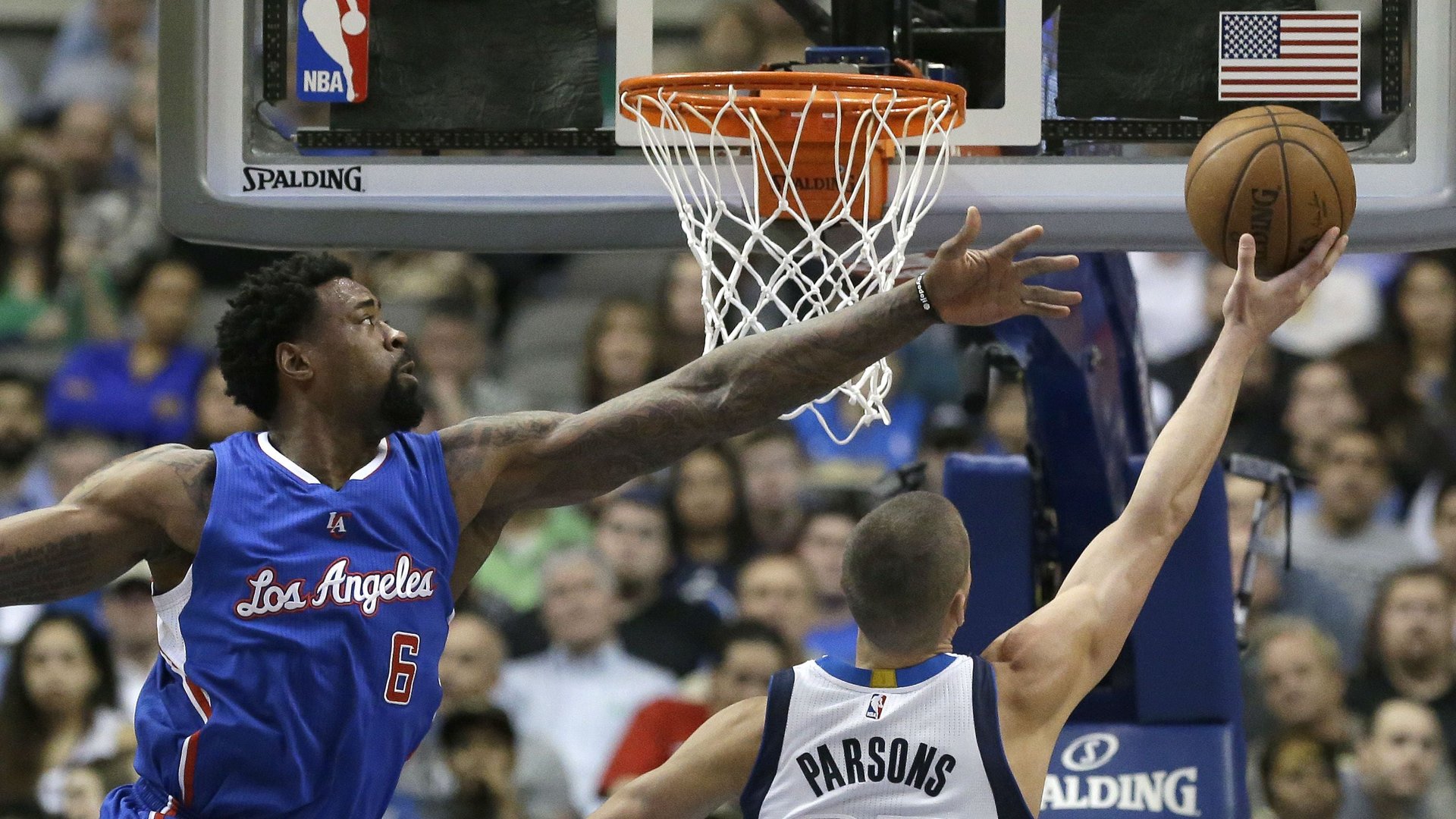The legend of DeAndre Jordan: How the craziest day in NBA history unfolded, in tweets
Yesterday (July 8) will go down as perhaps the most ludicrous day in the history of the National Basketball Association. And it all began with this emoji by Chandler Parsons, a forward for the NBA team Dallas Mavericks owned by billionaire entrepreneur Mark Cuban:


Yesterday (July 8) will go down as perhaps the most ludicrous day in the history of the National Basketball Association. And it all began with this emoji by Chandler Parsons, a forward for the NBA team Dallas Mavericks owned by billionaire entrepreneur Mark Cuban:
But let’s rewind a bit.
DeAndre Jordan, an All-Star caliber center for the Los Angeles Clippers, became a free agent at the end of last season. On July 1, free agents were allowed to begin negotiating deals with prospective teams. But because of NBA rules, they weren’t allowed to officially sign new contracts until July 9, meaning all “commitments” during this one-week period are verbal.
After being courted by a number of suitors, including the Clippers, Jordan decided to verbally commit to a contract with Parsons’ Mavericks on July 3. Players change teams all the time, so there’s nothing to see here, right? Wrong.
Blake Griffin and Chris Paul are two star players for the LA Clippers. Apparently, some time after committing to the Mavericks, Jordan had a change of heart, and asked to meet with members of the Clippers organization at his home in Houston, Texas.
This is where Parsons’ plane emoji tweet comes in. Upon hearing the news that Jordan was meeting with Doc Rivers, the Clippers’ coach, and Clippers players, Parsons, Mark Cuban and others headed to Jordan’s home themselves to see if they could perhaps prevent this betrayal.
That’s when The Great NBA Emoji War began.
Clippers players sub-tweeted Parsons by expressing the modes of transportation that they were using to get to their meeting with Jordan in Houston.
(The “banana boat” is a reference to this picture snapped of Paul on vacation with LeBron James and other NBA players in the Bahamas.)
But Mark Cuban wasn’t about to let his prized free agent go without a fight.
…a fact that Mark Cuban’s brother Brian quickly questioned.
(Broussard later corrected “Dallas” to mean “Houston.”) From there, it deteriorated into a near-hostage situation.
(Griffin joking—or perhaps not—about locking Jordan in a room in his own home.)
In the end, the Mavericks were never able to talk to Jordan, and he signed a new four-year contract with the Clippers at the stroke of midnight, July 9. A player changing his mind and backing out of a deal is not completely without precedent (though it’s quite rare). What is unprecedented, however, is how the Jordan situation played out like a heist thriller.
So what happens now? For starters, the Clippers—already a fairly reviled organization—will become the scourge of the NBA for these theatrics. Judging by the response to the incident on social media, Jordan is likely to become the most-hated player around.
This fiasco could also lead to a change in the NBA’s free agency rules, ESPN reporter Marc Stein predicts. Jordan and the Clippers proved that the current system encourages players to go back on their word, and nobody wants that.
But most of all, the incident seriously damages the Dallas Mavericks, as the team was in the midst of planning its entire future around signing DeAndre Jordan. They are likely to feel the effects of this betrayal for years.